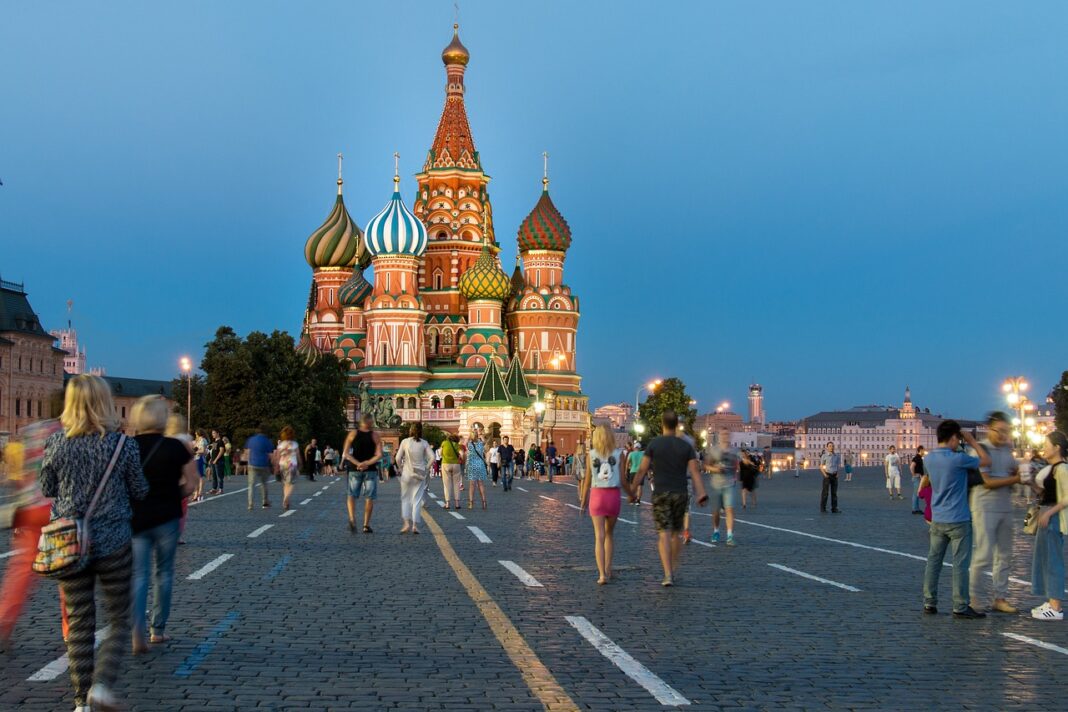Author: Robert Břešťan, HlídacíPes.org
In January, the Russian Embassy in Prague posted guidelines on its website for those Czechs who consider themselves to “share traditional Russian spiritual and moral values” and would like to move to Russia. Although no great interest is expected, those interested are asked to appear in person for an interview and to supply a range of personal information about themselves. From the point of view of the Czech security services, this may be a way to recruit new Kremlin collaborators in the Czech Republic.
There is no big commotion in front of the Russian Embassy in Prague’s Bubenec district, on the border of the street renamed some time ago to Ukrainian Heroes and Boris Nemtsov Square, on a January afternoon.
The embassy’s website in early January provided detailed information on how those people who “share traditional Russian spiritual and moral values” should apply for visas for travel to Russia and subsequent temporary residence permits, but apparently no big rush is expected.
The Russian Embassy did not respond to a journalist’s inquiry whether any Czech interested parties had contacted them in recent days. Questions about what exactly is meant by traditional Russian values, how long it takes to process a visa and what rights such a Czech citizen would have in Russia also remained unanswered.
Difficult procedure to challenge
The process should result in the granting of a single-entry ordinary private visa for 90 days, followed by an application for a temporary residence permit to the Ministry of Interior of the Russian Federation.
According to the instructions, applicants interested in moving to Russia should first report to a published email address, then come for an interview, present their passports, criminal records and medical documentation. This includes being photographed and fingerprinted. Proof of Russian language proficiency is not required.
According to the Czech counter-intelligence agency BIS, this is a difficult procedure to challenge on the part of the Russian Federation, because “the provision of personal data, including sensitive data, cannot be forbidden to anyone, it is everyone’s responsibility”. The secret service says it has no information that there is any significant interest on the part of Czech citizens.
“At most, we will be dealing with a unit of people, most of whom will not be going to Russia anyway,” BIS spokesperson Ladislav Šticha said. He said the BIS sees a much greater potential risk in the fact that this platform could serve primarily as a recruitment tool for potential Kremlin collaborators on Czech territory.
“We keep a fairly good overview of these activities and it would be naive of Czech supporters of the Putin regime to think that their cooperation with the Russian Federation and its intelligence services would not be known,” Šticha notes.
The Kremlin´s humanitarian support
The Kremlin is presenting the possible granting of visas to foreign applicants as “providing humanitarian support” and citizens of specifically enumerated countries included “on the list of foreign states and territories implementing policies that impose destructive neoliberal ideological positions contrary to traditional Russian spiritual and moral values” can apply for a special visa. A decree to this effect was issued by Russian President Vladimir Putin on 19 August last year.
The list includes the Czech Republic, most EU countries and democratic countries around the world (Australia, Britain, Canada, New Zealand, Japan, South Korea and others). On the other hand, Slovakia or Hungary are missing from the list.
At the end of August, the Russian Interior Ministry published information that more than four hundred foreigners had been resettled in Russia, including from Germany, Latvia, Lithuania, Estonia and Canada.
Then in December 2024, it added further figures showing that 18 Americans, 143 people from Europe and 20 Australians had moved to Russia under Putin’s decree.

